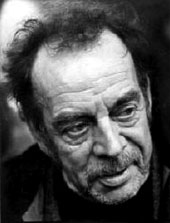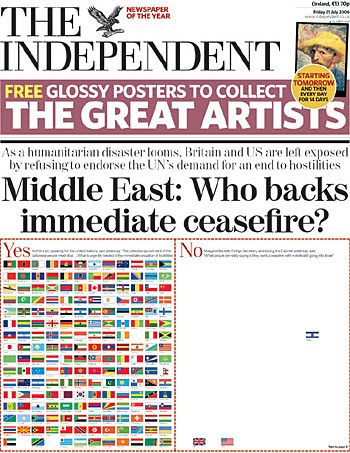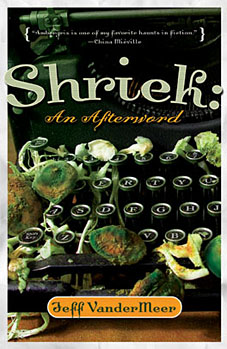An announcement
 The international committee to choose the winner of the Jack Trevor Story Memorial Cup has at last been selected. The jury consists of Mr John Coulthart (UK), M. Jean-Luc Fromental (France), Mr Michael Moorcock (UK), Mr Martin Stone (France) and Mr Jeff VanderMeer (USA) who will meet to confer in the course of the following days. The winner will be announced after a traditional final meeting at a well-known brasserie in Paris by the end of July. This prize is not given every year. It is generally awarded for a work of fiction or body of work which, in the opinion of the committee, best celebrates the spirit of Jack Trevor Story, who died in 1992. As well as for his journalism, much of it published in The Guardian newspaper, Mr Story was known for such humorous novels as The Trouble With Harry (filmed by Alfred Hitchcock) and the Live Now, Pay Later trilogy featuring the ‘tally man’ Albert Argyll (played by Ian Carmichael). As well as the traditional cup, a cash prize is awarded. The conditions of the prize are that the money shall be spent in a week to a fortnight and the author have nothing to show for it at the end of that time. This is to recall Mr Story’s famous reply to the bankruptcy judge who enquired where a substantial sum of money paid to him for film rights had gone ? “You know how it is, judge. Two hundred or two thousand, it always lasts a week to a fortnight.’
The international committee to choose the winner of the Jack Trevor Story Memorial Cup has at last been selected. The jury consists of Mr John Coulthart (UK), M. Jean-Luc Fromental (France), Mr Michael Moorcock (UK), Mr Martin Stone (France) and Mr Jeff VanderMeer (USA) who will meet to confer in the course of the following days. The winner will be announced after a traditional final meeting at a well-known brasserie in Paris by the end of July. This prize is not given every year. It is generally awarded for a work of fiction or body of work which, in the opinion of the committee, best celebrates the spirit of Jack Trevor Story, who died in 1992. As well as for his journalism, much of it published in The Guardian newspaper, Mr Story was known for such humorous novels as The Trouble With Harry (filmed by Alfred Hitchcock) and the Live Now, Pay Later trilogy featuring the ‘tally man’ Albert Argyll (played by Ian Carmichael). As well as the traditional cup, a cash prize is awarded. The conditions of the prize are that the money shall be spent in a week to a fortnight and the author have nothing to show for it at the end of that time. This is to recall Mr Story’s famous reply to the bankruptcy judge who enquired where a substantial sum of money paid to him for film rights had gone ? “You know how it is, judge. Two hundred or two thousand, it always lasts a week to a fortnight.’
Shriek: An Afterword
Music on Cross Street
Sparsely-attended but very worthwhile performance at the
Unitarian Chapel this evening by Steffen Basho-Junghans
(above) and Danny Saul (below).
The Middle East now

Arthur magazine‘s recent feature on life in the Middle East by Daniel Chamberlin was an excellent mix of travelogue/reportage. Iraq and the ongoing Israeli/Palestinian conflict aside, the region was fairly peaceful last year. How quickly things change. This is from the latest Arthur email bulletin.
FROM ARTHUR CONTRIBUTING EDITOR DANIEL CHAMBERLIN:
Last summer I went traveling with my brother Paul in Egypt, Lebanon and Syria. The result was “Dr. Moustache and The Egyptian Gentleman,” a three-part series in the November 2005 and January 2006 issues of Arthur.
Paul returned to Damascus this summer to refine his Arabic and research his thesis – he’s getting a Ph.D. in diplomatic history at Ohio State University – in Syria’s governmental archives.
The first sign that my brother’s tour of Syrian libraries might not go as planned came on June 25 when Palestinian guerillas linked to the Hamas government kidnapped an Israeli soldier and killed two others. The ensuing conflict with Israel was escalated on July 12 when some Hezbollah guys sneaked from Lebanon into Israel, killing eight soldiers and kidnapping two others, prompting Israel to start dropping bombs all over Lebanon, destroying the country’s infrastructure to the tune of several billion dollars and killing over 200 civilians as of July 18. Hezbollah shot more of their wildly inaccurate rockets back into Israel, killing some 13 civilians.
Paul is living in Damascus though, not Beirut, Haifa or Gaza City. But Khaled Meshal, the exiled leader of Hamas, also lives in Damascus with the permission of the government- he moved there after Israeli Mossad agents tried to assassinate him in Jordan in 1997 by putting poison in his ear. Israel expressed its discontent at this arrangement by having fighter jets buzz Syrian President Bashir Asad’s summer pad in Latakia shortly after things started getting bloody in Gaza.
As for Hezbollah, they do their own thing-whether it’s firing Katyushas into Israeli settlements, selling keychains in the gift shops on the Israeli border that Paul and I visited last summer or serving as members of Lebanon’s parliament – but they receive support from both Syria and Iran. The U.S. and Israeli governments have indicated they hold Syria responsible for the actions of both Hezbollah and Hamas. In an interview with Charlie Rose, the Israeli representative to the United Nations characterized this as not only part of the “War on Terror,” but went so far as to say that it was one of the early chapters of World War III. Tehran and Damascus, it should be mentioned, have agreed to back the other should Israel or the U.S. decide to attack.
Paul and I talk frequently via e-mail, and the following is his daily journal of what life in Damascus has been like lately.
Daniel Chamberlin Los Angeles July 18, 2006
LETTERS FROM DAMASCUS by Paul Chamberlin
*** Friday 14 July*** Tonight we met a man who fought in the Syrian army in the Golan during the 1973 war. He seemed considerably less concerned about the situation here than us, explaining that the people here could sense when a war was coming, and everything was fine.
***Saturday 15 July*** Things got worse today. I went to the internet cafe this morning to find my inbox full of emails from the United States urging me to evacuate Damascus immediately. My advisor at Ohio State-a historian of U.S.-Israeli relations-is suggesting that it might not be a bad idea to get out of the region as soon as possible while my friend Steve in Beirut recommends that I might consider heading north to Turkey. Apparently he’s heard from a contact in the State Department that the situation could escalate to conflict with Syria in the very near future. Rumor has it that the Israeli fleet is massing off of Tripoli in preparation to begin bombing the northern highways to Syria. Apparently he hasn’t heard anything from the U.S. Embassy in Beirut even though the city has been under Israeli attack for two days. To make matters worse, I find another email from my friend Mariam, also in Beirut, relating her plans to head to Damascus via the same northern roads that the Israelis are planning to attack. I send a cautionary email to her, convinced that it won’t reach her in time to make any difference.




